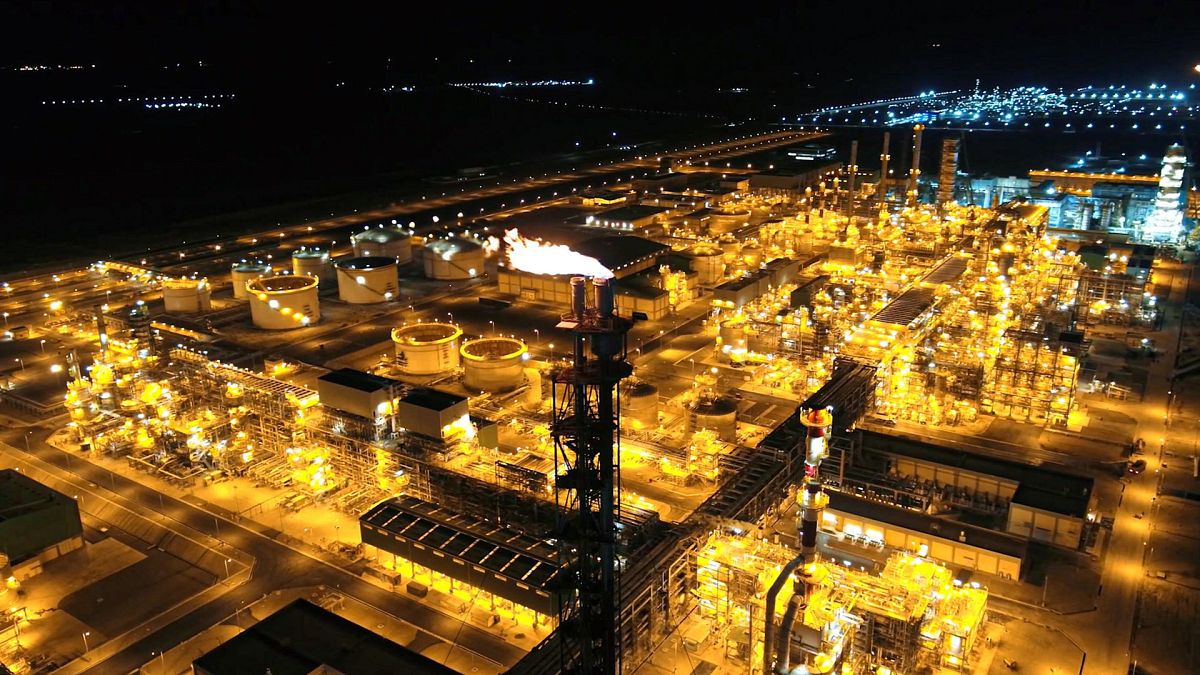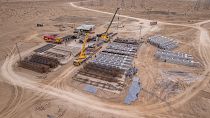Uzbekistan’s grand ambitions to become a major global player in the chemicals sector are underway — and a €2.83 billion gas-to-liquids plant already built and a more than $3-billion methanol-to-olefins complex now under construction are at the heart of it all.
The nation is rich in methane, the main component in natural gas. Just ask China which, until recently, was a major customer for Uzbekistan’s unprocessed gas.
Or ask anyone who owns a car in Uzbekistan.
According to a government report in June, almost two-thirds of vehicles in the country use methane-powered engines. In comparison, according to the transport research organisation the RAC Foundation, 95 per cent of the UK’s vehicles use petrol or diesel.
And, in a bid to harness the wealth of reserves, the Ministry of Energy is revving up its plans to reorient how it uses the gas to transform the nation, its domestic industries and exports.
The first stage of the operation was the construction of the vast UzGTL complex in the Qashqadaryo Region of southeastern Uzbekistan.
The plant has already begun operations, producing diesel and aviation fuel, but when fully operational, it will produce 1.5 million tons of finished liquid products, including 307,000 tons of jet fuel, 724,000 tons of diesel fuel, 437,000 tons of naphtha, and 53,000 tons of liquefied gas.
Next on the agenda is the construction of a methanol-to-olefin (MTO) plant in Karakul, Bukhara region. There, a state-of-the-art fluidised reactor will convert methanol into ethylene, propylene and water.
Not only will the plant be able to produce over 730,000 tonnes of finished high-value polymer products, which is enough to satisfy all domestic demand and greatly reduce the need to import similar raw materials, but it will also allow Uzbekistan to start exporting greater amounts to Commonwealth of Independent States, China, Turkey and South-East Asian nations.
After the new government of President Shavkat Mirziyoyev came to power in 2016, leaders faced a major issue: the fast-growing population was increasing demand for imported petrol and other products, pushing the prices higher.
At the same time, a growing population meant greater demand for employment.
As a result, the Ministry of Energy is focussed on rebalancing the economic opportunities the country has thanks to its commodity-rich lands.
The MTO plant is aimed at shaking up the energy industry, as the whole economy is undergoing major reforms while attracting international technologies, skills and capital.
A Free Economic Zone (FEZ) has been established in Karakul, offering domestic and foreign companies tax exemptions, as well as enabling them to import and export in different currencies.
The government predicts it will help create 2,300 new highly skilled jobs while generating at least $2 billion in additional tax revenues over the next two decades.
“It is hugely exciting and promises profound benefits to the Uzbekistan economy. Over the next several years, people will see whole new manufacturing industries developing, both in the cluster now starting to develop within the Karakul Free Economic Zone and beyond.
“I regard our complex as the foundation for the re-industrialisation of Uzbekistan.”
Technology and environmental companies from China, the US, the UK and Italy are involved in the project, indicating the global attraction Uzbekistan's MTO development has.
The plant will produce polyethylene terephthalate (PET), polypropylene (PP), ethylene vinyl acetate (EVA) and low-density polyethylene (LDPE).
The chemicals can be turned into the likes of car details, children's toys, medical glassware, carpets, pipes, textiles and solar panels.
They are widely used across industries including agriculture, pharmaceuticals, auto manufacturing and electrical engineering, too.





